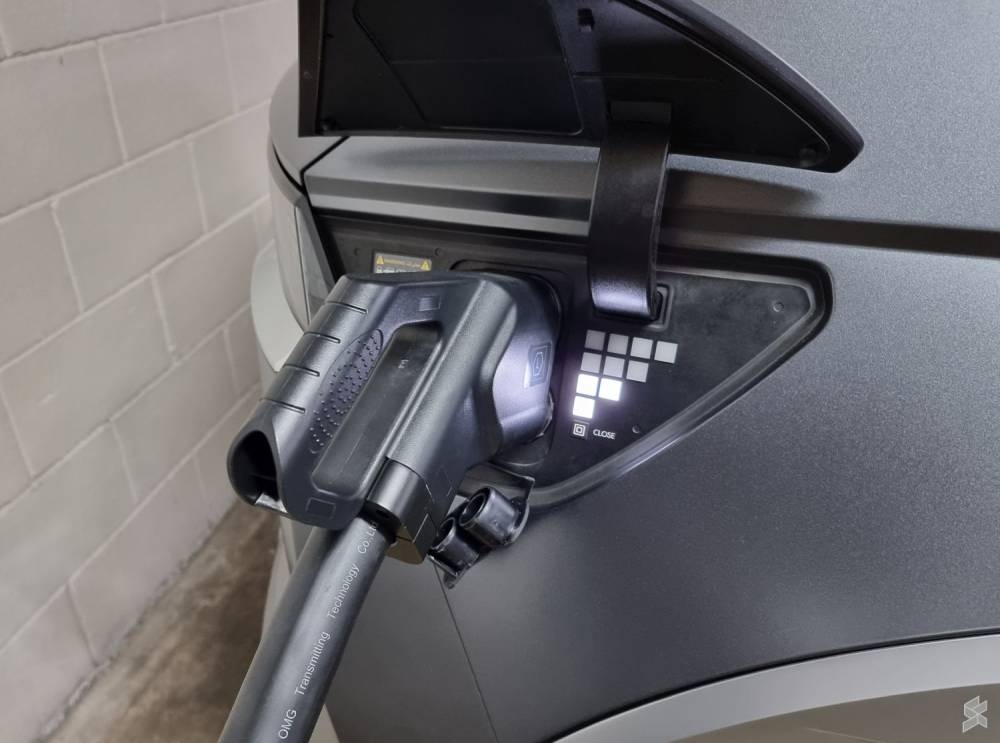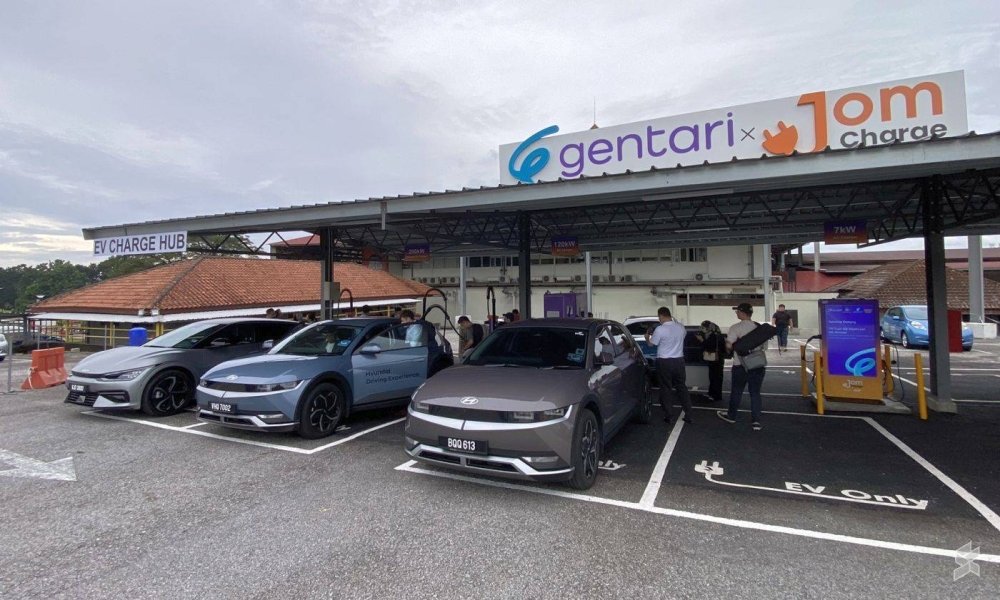KUALA LUMPUR, Dec 30 — NanoMalaysia Berhad (NMB), the agency for localisation of electric vehicle technology development under the Ministry of Science, Technology and Innovation (Mosti) is piloting an EV charging solution using their RENEW (Renewable Energy Nanogrid) concept powered by clean and renewable energy. The first charger with nano-enhanced solar panels will be installed at Temasya Petronas station along the Federal Highway.
The trial is conducted as part of a strategic collaboration between NanoMalaysia and Petronas Dagang Berhad for a period of 18 months as part of the Enabling Mobility Electrification for Green Economy (EMERGE) initiative. The technology development is managed by Nano Commerce Sdn Bhd (NCSB), a wholly-owned subsidiary and business arm of NMB.
EV charger with nano-enhanced solar panels and batteries to reduce grid power dependency by up to 20 per cent
According to the statement, the RENEW solution consists of a 50kW EV charger, nano-enhanced solar PV panels and lithium-ion batteries. The solar PV is enhanced through nano coating supplementing hydrophobic properties which claim to provide greater efficiency during inclement weather. On top of using solar energy, it also has energy storage capabilities which can help to reduce the system’s dependency on grid power by up to 20% which will assist Malaysia’s decarbonisation.
NanoMalaysia shared that EMERGE focuses on developing electric vehicle technologies to support low-carbon mobility through the enhancement and deployment of energy storage and management system, the Internet of Nano-Things and off-grid green charging stations, and building EV prototypes as validation platforms for eventual industrial adoption. This initiative supports Malaysia’s target to reduce carbon intensity against GDP by 45% by 2030 and reach carbon neutrality as early as 2050.

The agency added that the strategic collaboration between NanoMalaysia and Petronas Dagangan Berhad aligns with the National Energy Policy 2022-2040 of early-stage public-private initiatives to support charging infrastructures to enable and accommodate EV penetration.
NanoMalaysia wants Malaysia to be a regional leader in EV technology

NanoMalaysia’s Chief Executive Officer, Rezal Khairi Ahmad said “NanoMalaysia is aggressively nudging the country to be at least a regional leader in EV technology and innovation rather than just mere users of imported products. Success from this pilot project will strengthen the local EV industry and expedite the government’s target to achieve 10,000 EV charging stations in Malaysia by 2025 under the Low Carbon Mobility Development Plan 2021-2030. This may increase the percentage of EV numbers towards 38% total industry volume in the country in line with Malaysia’s Low Carbon National Aspiration 2040.”
NanoMalaysia said the penetration rate for renewable energy in Malaysia was at 2% from 92.8 million tonnes of oil equivalent (MToe) in 2019 and the country has set a target to achieve 20% by 2025. There are approximately 30,300 Plug-in Hybrid Electric Vehicles (PHEVs) and Battery Electric Vehicles (BEVs) on Malaysia roads and Malaysia is targeting 220,000 EVs by 2030 under the National Electric Mobility Blueprint.
NMB expects the EV Charging market in Asia Pacific to grow at a compounded annual growth rate of 28.3% between 2020 and 2025 and it is predicated on increasing EV sales, better infrastructure and government support. It said the APAC market value stood at USD 1.73 billion (about RM7.6 billion) in 2020 and the Malaysian addressable market is forecast to hit RM256.5 million in 2025. — SoyaCincau






















